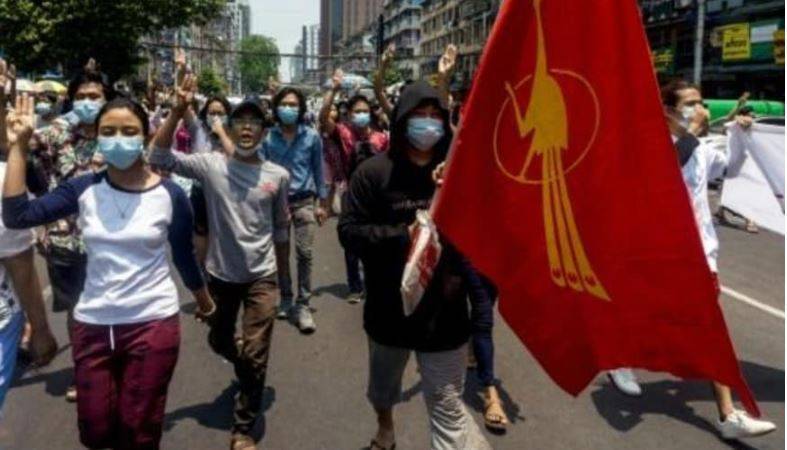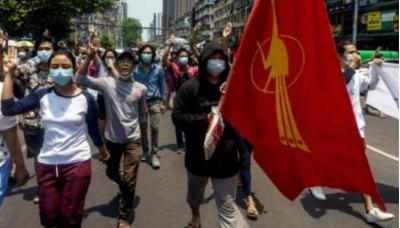The UN General Assembly will vote on Tuesday on a non-binding resolution calling for an "immediate suspension" of arms exports to Myanmar and its military leaders, the UN announced on Sunday. A UN spokesperson told AFP that the resolution, drafted by Liechtenstein with the support of several parties including the European Union, the United States, and Britain, "will be brought for approval at an in-person session to be held at UN General Assembly headquarters" on Tuesday at 3 PM (19:00 GMT). According to diplomats, if there is no consensus on the resolution, it will be put to a vote, and in this case, the key will be to gather as much support as possible among the 193 member states of the General Assembly.
The resolution, which has been under negotiation for several weeks, was co-sponsored by 47 countries from Europe, the Americas, and Africa, along with one Asian country, South Korea. Unlike UN Security Council resolutions, decisions made by the UN General Assembly are not binding; however, they carry significant political weight. The draft resolution calls for "the immediate suspension of the supply, sale, and transfer of all arms, ammunition, and other military equipment to Myanmar, directly and indirectly."
The text urges the Myanmar military authorities, who seized power in a coup on February 1, to "end the state of emergency" and "immediately cease all forms of violence against peaceful protesters." It also calls for the "immediate and unconditional release" of President Win Myint and civilian leader Aung San Suu Kyi, as well as others who have been arbitrarily detained. Furthermore, the draft resolution urges "Myanmar to implement without delay" the plan for a return to democracy put forward by the Association of Southeast Asian Nations (ASEAN), and it calls for "the immediate facilitation of a visit from the UN envoy," who has been barred from entering the country so far, as well as allowing "humanitarian assistance to access safely and without obstruction."
The call for an arms embargo on Myanmar has long been demanded by numerous non-governmental organizations. In the Security Council, which has unanimously issued four statements regarding Myanmar since February, China has softened its stance each time, but this idea has never been put up for discussion knowing that council members are aware that China would not hesitate to use its veto power to quash it.




